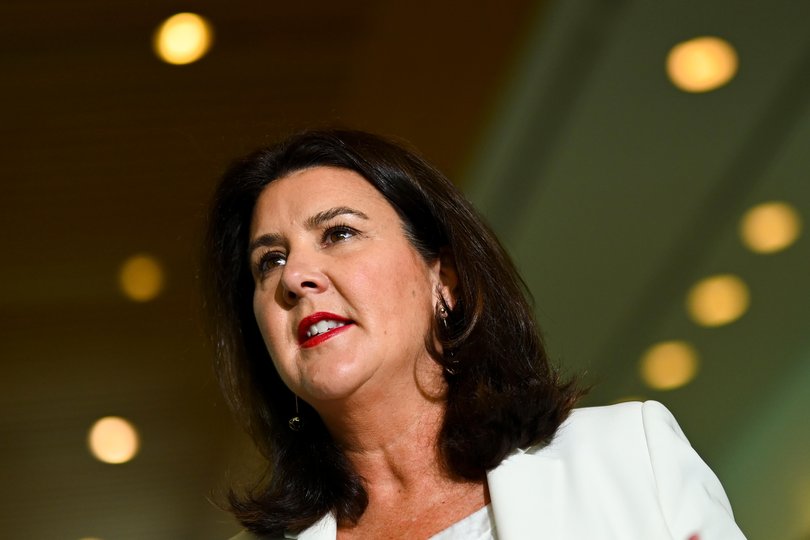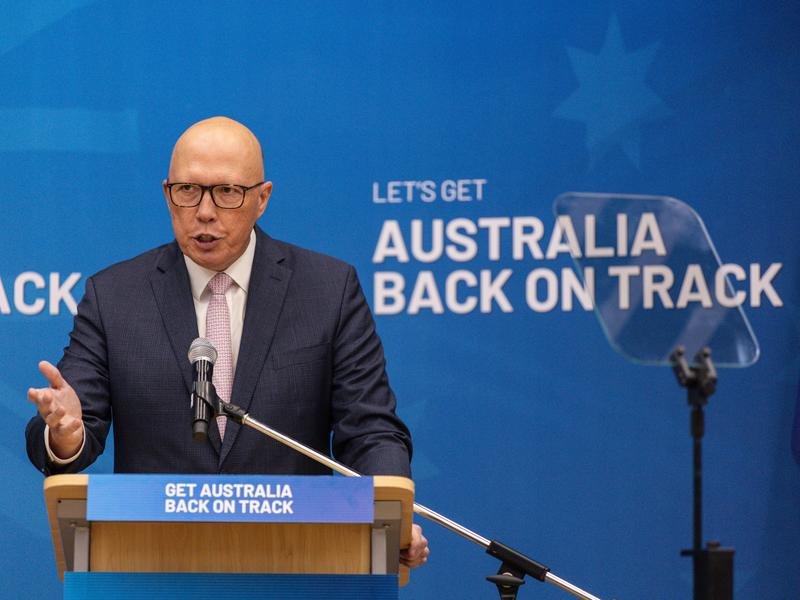Coalition pledges new ‘tell them once’ strategy to slash red tape burden on small business

In an election that will be fought over economic management, shadow finance minister Jane Hume has pledged to roll out a new “tell them once” strategy to slash the red tape burden on businesses.
The plan would target better aligning of government agencies and regulators to limit requirements on companies across key portfolios to file the same information multiple times in different formats, Senator Hume told The Nightly.
“It’s very easy for a wedding cake approach to regulation to build up over time, and removing layers of the wedding cake is going to be our priority,” she said.
Sign up to The Nightly's newsletters.
Get the first look at the digital newspaper, curated daily stories and breaking headlines delivered to your inbox.
By continuing you agree to our Terms and Privacy Policy.The proposal is one of a number to measures the Coalition believes fit into a growing global shift towards deregulation and reducing government intervention to improve productivity.
Ms Hume said it found its roots in feedback from businesses who were frustrated with the lack of streamlining between bureaucracies that led to unnecessary paperwork.
“It was actually initiated by some conversations we’ve had with people in the gas industry who were telling us that they were providing information to the ACCC that was also then required by the regulators, but in different formats,” she said, referring to the Australian Competition and Consumer Commission, the national competition regulator.

Miners, for example, who were required to give an environment impact assessment to the Department of the Environment, should be able to submit the same information at both State and Federal levels, she elaborated.
“It isn’t impossible, and it’s a huge productivity enhancing measure,” said the Senator.
“Often, the sectors that are affected are ones that are passing on the cost in a very opaque way, like energy, like telcos, like financial services, and that’s why I think that they would be the first cabs off the rank. We want to be able to make sure that those services are much more efficient.”
Businesses have appealed to all major political parties as a new parliamentary cycle approaches to take more action to ease the complexity of red tape that is eating into productivity, said Andrew McKellar, CEO of the Australian Chamber of Commerce and Industry.
“What we are seeing is that there’s a clear perception, and particularly from small business, that the regulatory compliance burden is increasing and has increased substantially over the past couple of years,” he said.
“When we surveyed small business last year, 82 per cent of small businesses said that red tape compliance was a significant issue and 61% said that burden had increased in the past 12 months,” he added.
The weight of reporting to government and other agencies contributed to the “cascading impact of regulation,” he said.
But Mr McKellar stressed the main source of concern was new regulation around employment arrangements and Industrial Relations laws, which made it “harder to create jobs and employ more Australians”.
“For a small business trying to manage their own accounts…it’s a struggle if you don’t have an HR department or dedicated HR support. It’s so much harder to ensure that you’re complying with all of those additional requirements and obligations now,” he said. “There are layers and layers of additional complexity.”
One practical step for any government would be to expand exemptions on burdensome bureaucracy for businesses with less than 15 employees to up to 25 staff, he said.
At a speech on Sunday that unofficially launched the Coalition’s election campaign, opposition leader Peter Dutton vowed to support businesses suffocated by government intervention and regulation as part of a wider push to “cut government waste”.

He said a Coalition Government would spend more on defence, health, the National Disability Insurance Scheme and aged care, while trimming spending on subsidies for uncommercial green hydrogen projects and the world’s first fault-tolerant quantum computer.
But the Coalition has so far offered few details on how it will implement its policies or what spending it will cut from the current Government budget.
Senator Hume did not reveal how the “tell them once” strategy would function if introduced, although one idea on the table is to create “regulatory grids” that show when new laws come into effect, to give added certainty to the financial services and other regulated industries.
“We’ll consult on doing this once we get into government, because this is not an easy thing to do, but we think it’s a really important direction that government should be moving in,” she said.
“This is a commitment that we will look at..But it’s not something that you walk in and change with legislation in week one,” she said.
Labor has pointed to its delivery of two budget surpluses, tax cuts, energy relief and inflation control measures as it defends its own economic record in the run up to the election.
The Coalition’s criticism of the hiring of 36,000 new public servants under Labor’s watch has also opened it to accusations it will undercut key public services if in power.
These jobs propped up “essential public infrastructure” to support veterans, NDIS, Centrelink and shortfalls in Defence, said Finance Minister Katy Gallagher on Monday.
“Two thirds of the jobs are outside of the ACT. They are in regional and remote parts of Australia providing essential services,” she said, adding to the Prime Minister’s accusations the Coalition had spent “billions of dollars” on consultancies when in government.
Senator Hume declined to comment on where or whether the Coalition would prune the public bureaucracy but dismissed the Government’s argument as “nonsense.”
“You don’t need to look too far around the world to see that this is a desire for an efficient and effective public service,” she said.
“You’re not going to create national prosperity by an ever-increasing government, by a bloated bureaucracy, and by simply a bigger quantum of spend,” she said.
“At some point you’re going to have to recoup that spend through either borrowing or through taxes, neither of which help the economy to grow.”

